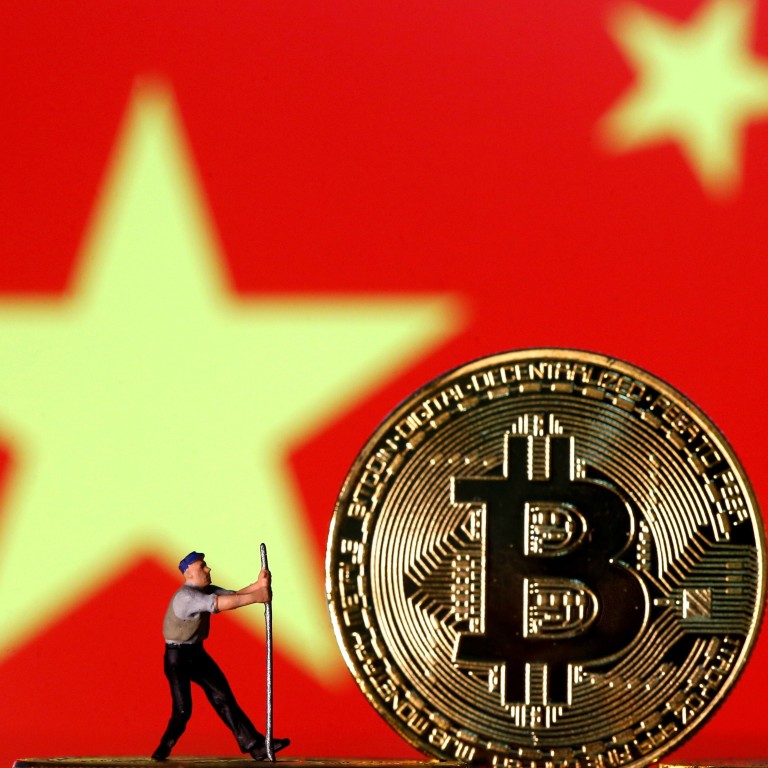
China’s central bank intensifies cryptocurrency crackdown as it targets offshore exchanges with ties to mainland
- The PBOC warned on Friday that anyone involved in providing support to an offshore exchange could come under investigation
- Any foreign digital currency exchange that provides services to Chinese citizens through the internet is engaging in illegal financial activities, it said
China’s central bank has intensified its crackdown on cryptocurrency activities, warning on Friday that anyone involved in providing support to an offshore exchange could come under investigation.
It is in one of the country’s most explicit warnings to date targeting foreign platforms.
Any foreign crypto exchange that provides services to Chinese citizens through the internet is engaging in illegal financial activities, it said. But the central bank on Friday also singled out any individuals or entities providing supporting functions to offshore platforms as also being liable.
“Any legal persons, unincorporated organisations, individuals who provide sales and marketing, payment settlement, technical support, who knowingly or should know that they are engaged in virtual currency related business, will be investigated in accordance with the law,” the People’s Bank of China said in a notification addressed to all local governments and autonomous regions.
But there are still exchanges that are domiciled outside China that have employees and business functions in the country.
In an internal memo seen by the Post, OKEx’s founder, Xu Mingxing, said it employed 1,200 people in 10 offices worldwide as of the end of 2020. In China, OKEx maintains sales, technical support and business development among other functions, according to the people.
In October 2020 the exchange had to suspend all its customers’ cryptocurrency withdrawals, after Xu – also known as Star Xu – who reportedly holds the private keys to clients’ crypto assets, had been absent from work and was reportedly under investigation by mainland Chinese police.
Nobody from OKEx was immediately available for comment on Friday.
In the notification, the PBOC also said it would work with multiple government agencies, regulators and the judiciary to target illegal crypto activities.

